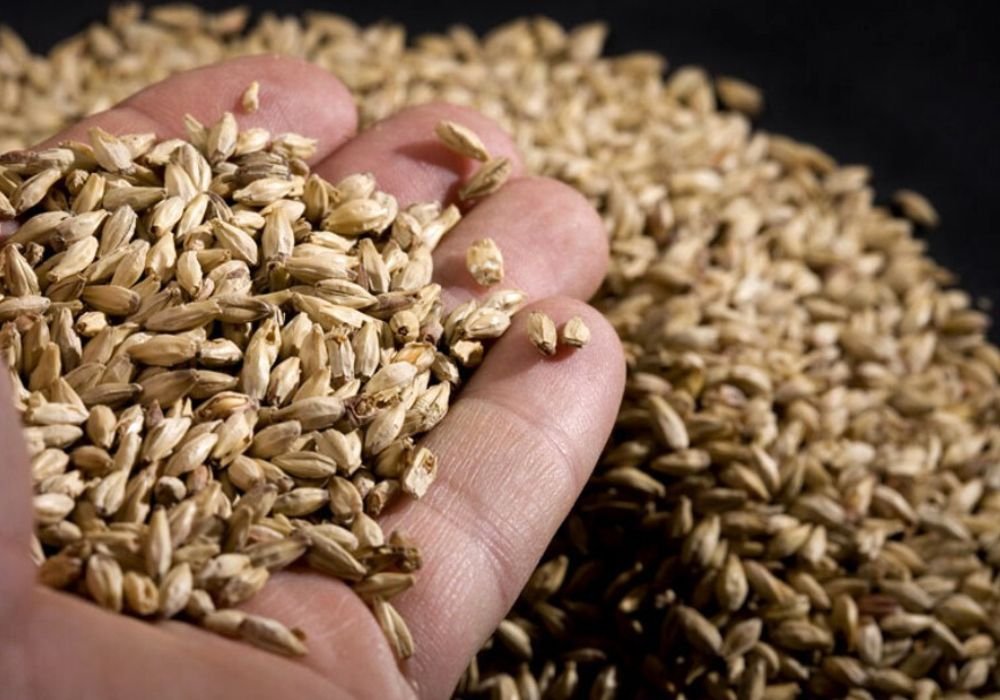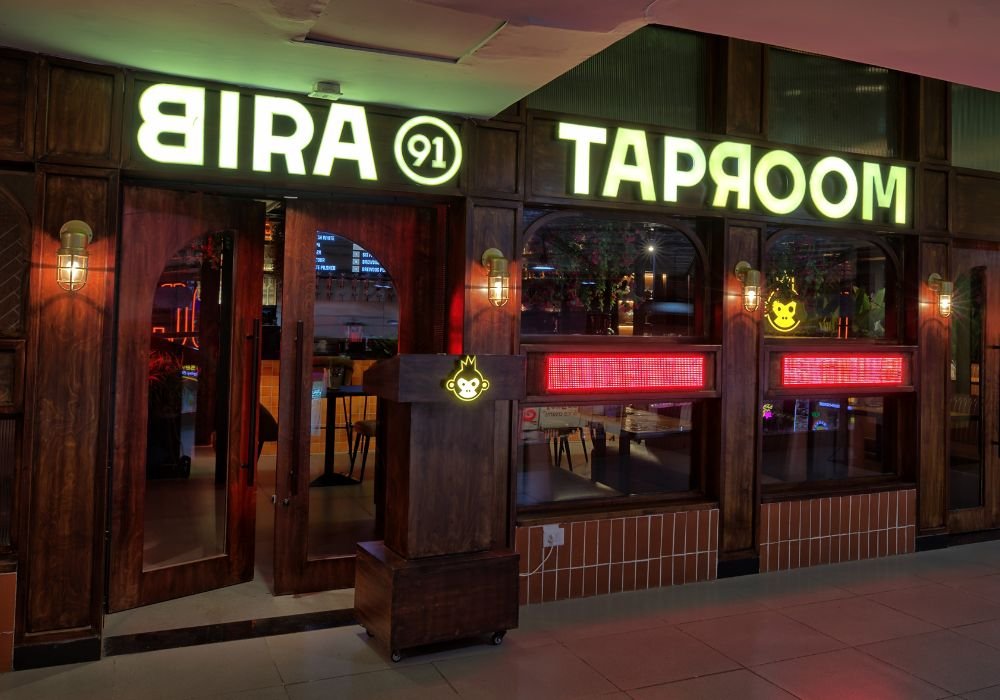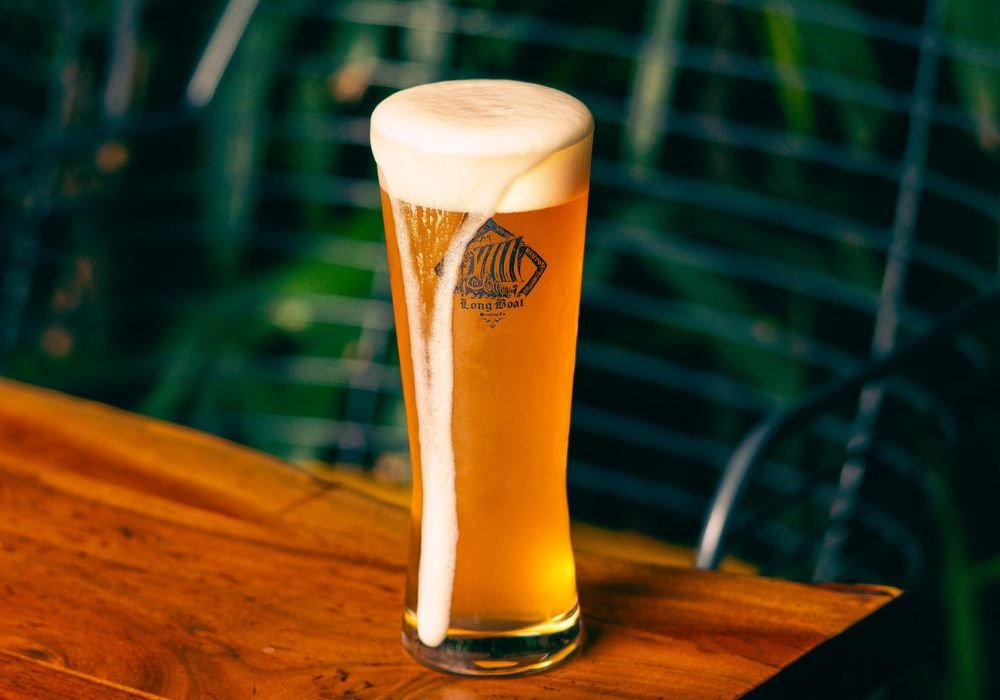Mind The Gap: It’s Time for Brewers to Engage Consumers on Sustainability

Addressing the climate crisis through responsible business practises is more urgent than ever. The beer sector can respond by embedding sustainability into their brand communications and marketing to engage consumers on sustainability and get them excited about doing the right thing for people and the planet. But where do they start?
Communicating your approach to sustainability – from addressing climate change impacts to protecting the health and wellbeing of customers – can be a daunting task. According to the latest analysis by Bain, around 90% of brands do not embed sustainability frequently in their communications1. The beer market is significantly behind many other sectors, with 80% of the companies showing “low” levels of communication on sustainable themes, including health, diversity and inclusion, waste, carbon emissions and water1. So, by rectifying this, the companies have a real opportunity to gain the competitive advantage, boost growth and win market share among a more enlightened consumer base.
Trust and transparency have become valuable currencies for brands today. There is an ever-growing demand from consumers that companies operate sustainably by acting in the best interests of people, communities and the planet. Consumers are looking for businesses to help them make the best choices, to produce the things they buy in a responsible way, but without compromising on quality, taste or price.

Magali Deryckere, Associate Partner of Bain & Company, shared during a webinar organised by IFF on 23 November 2021, that 55% of consumer goods firms have done little so far to embed sustainability messaging and communications into their brand marketing.
It is time beer companies defined their “swords” – that is, the clear actions they are taking toward doing the right thing for the planet and that they know consumers care about – and start engaging the market on clear, tailored messages that explain what impact they are having in the world, she added.
Consumers and investors expect companies to act on sustainability – and businesses that do so will be rewarded. 50% of the growth in the consumer products market is coming from products marketed as “sustainable”, stated Magali Deryckere. Yet embedding sustainability into brands remains a struggle. Company CEOs are confident they have set ambitious sustainability goals, but just 5% of them feel their brands are doing enough to communicate and engage in them1.
To tackle it in an ideal way, after defining their “swords”, they must also define their “shields,” or the areas they closely monitor and can have a positive impact on. Communications must be fact based and data driven. Consumers expect brands to act, but without any greenwash. Beer brands must help consumers understand the benefits of sustainability and communicate to them in a clear and consistent way.

Enzymes play a role in driving brewers closer to their sustainability goals. They can, for example, help reduce the need for very high temperatures in the process, reducing energy consumption in the brewery or they can help shorten the cleaning cycle, which saves both on water and energy. Sustainability teams must work closely with brand teams to understand how they are connecting with consumers. Communications must be true to the identity and purpose of each brand, with messaging that is authentic and true.

IFF has solutions to help the brewing industry when it comes to sustainability. To know more about a key component of IFF’s environmental sustainability strategy related to renewable energy, click here. For making beer, brewers use raw materials like barley, corn, rice, cassava and sorghum. Sorghum could be a likely upcoming crop for beer making, not only in African countries but also in other regions, including Europe and in Latin America. Although making beer from sorghum is not straightforward, there are a variety of solutions for overcoming these difficulties. Sorghum varieties do not contain a high enough level of enzymes necessary to transform the raw material into beer which is exactly where IFF brewing enzymes can support.

You might ask yourself: what is the benefit of using some sorghum rather than just staying with 100% malt? If you compare using 100% malt to using 50% malt* and 50% local unmalted sorghum, there is a big environmental impact, even in different parts of the world.

In our studies based on producing a 5% alcohol lager in Ukraine, Western Africa and Argentina, using the malt/sorghum mix can deliver 20-23% saving on climate change potential. By switching to sorghum in Ukraine and in Argentina, you’ll have a decrease in land use requirements. Comparatively in Africa, to produce sorghum, more land is required which in turn is a good solution to support the local economy and communities.
It’s no secret that some of the major breweries are already using sorghum and are communicating about it. Enzymes support breweries in creating a more sustainable future, at a low use rate, enabling them to use local raw materials and supporting local communities.

The beer industry has been performing slowly to bridge the gap between sustainability performance and embedding it into brand marketing and communications. To this, IFF’s Global Product Manager for Brewing & Distilling, Jens Eiken responded, saying:
“Enzymes are small molecules with a big impact. Without enzymes, it’s difficult to process a lot of these raw materials. We have carried out a life cycle assessment documenting the impact of our enzymes and how they improve the sustainability of brewing.”
“For instance, in brewing, you may boil and cook at 100 °C. With some of our enzymes, you can reduce cooking temperature to 85°C, meaning that you have a 15°C saving on heat energy. In other examples, brewers can filter significantly more beer in a given cycle, meaning that they don’t have to wash and clean the filter so often, reducing energy and water consumption.” said Jens.
The benefits from the suite of IFF’s brewing enzyme solutions are easy to see. Our enzymes secure more efficient mashing, improve filtration, and optimise the use of a variety of raw materials, improving throughput. Each solution provides a brewing functionality which enables customers to brew uniquely.

Guided by the targets outlined by the United Nations’ Sustainable Development Goals, brewers are looking to lessen their environmental impact in various ways. For example, by cutting back on water and energy usage, as well as reducing greenhouse gas emissions and land use. The IFF’s master brewers and portfolio of brewing enzymes offer innovative solutions to help the industry meet its sustainability goals.

This article was adapted from a 60-minute online webinar moderated by sustainable business writer Tom Idle, who was joined by Katie Hoard – Global Senior Director of Sustainability at AB InBev, Görkem Demirtaşoğlu – Sustainability & Innovation Manager at Heineken, Magali Deryckere – Associate Partner at Bain & Company and Jens Eiken – Global Product Manager for brewing and distilling enzymes and master brewer at IFF.
You can see the webinar on-demand via: Mind the gap: It’s time for brewers to engage consumers on sustainability. Here’s how (pmi-live.com)
Source:



